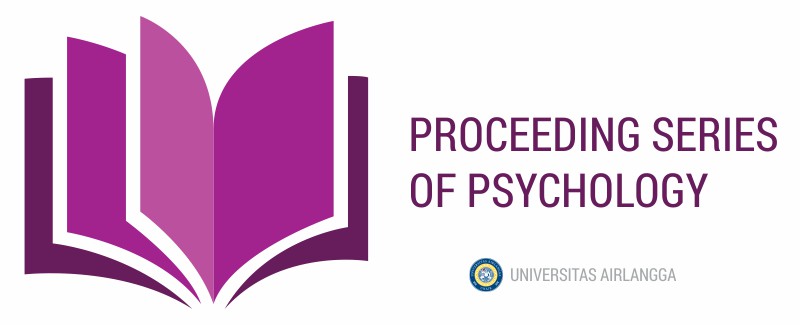Tentang Jurnal Ini
Proceeding Series of Psychology merupakan prosiding yang diterbitkan oleh Fakultas Psikologi Universitas Airlangga, pertama kali pada tahun 2023.
Proceeding Series of Psychology bertujuan untuk menyebarkan ilmu pengetahuan dan sebagai wadah bagi peneliti serta praktisi dalam mempublikasikan hasil penelitian.
Artikel dalam prosiding ini terbit dalam bahasa Indonesia dan memiliki topik yang beragam mulai dari bidang kesehatan, pendidikan, sosial, dan industri-organisasi dengan dasar keilmuan yaitu psikologi.
Terbitan Terkini
Vol 2 No 1 (2024): Third Edition
Proceeding of The International Conference on Current Advancement in Psychology 2022
Diterbitkan:
10-12-2024


